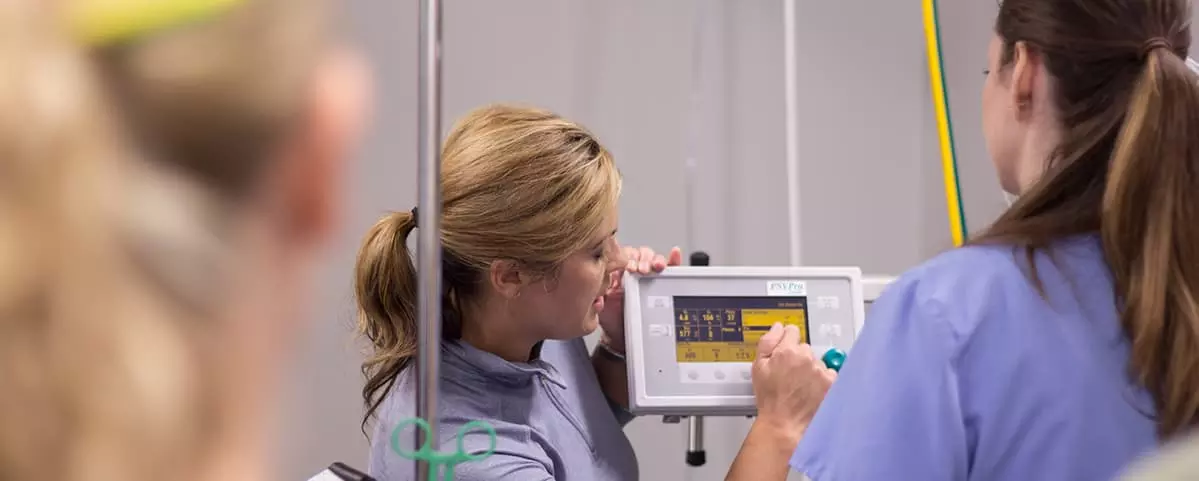Enrollment Update
Applications for Summer 2024 are Closed.
- In person interviews are held in early November.
- New cohorts begin in May of each year
**Please note: The GRE is no longer required for application or admission to the Doctor of Nurse Anesthesia Program at Newman University**
The Doctor of Nurse Anesthesia Practice (DNAP) program at Newman University has been designed for the baccalaureate-prepared registered nurse who wishes to become a Certified Registered Nurse Anesthetist. The program offers both didactic and clinical education to enable the student to acquire the knowledge, skills, and competence necessary to assume an advanced practice role.
The DNAP program is a multifaceted academic unit that addresses healthcare needs and problems of the city, region, and nation through anesthesia education. The program prepares qualified individuals to assume advanced practice nursing roles in the delivery of safe and evidence-based anesthesia care. This safety is only achieved with a complete understanding of the science of anesthesia complemented by the humanistic touch of a caring practitioner—the art of anesthesia. This blending of science and art is accomplished by providing the student with a strong academic base upon which to build clinical experience.
Program Curriculum
DNAP Program Description and Design
The Doctor of Nurse Anesthesia Practice is a comprehensive 36-month course of study that prepares registered nurses to become Certified Registered Nurse Anesthetists (CRNAs). This program includes a didactic portion conducted at Newman University and a clinical anesthesia component carried out at local and regional hospitals. The first year is primarily didactic, allowing the student to acquire the skills necessary for the safe administration of anesthesia. During the second year, the student continues didactic instruction and an introduction to the practice of clinical anesthesia under the supervision of Certified Registered Nurse Anesthetists and physician anesthesiologists. As the student progresses through the program, didactic instruction lessens while clinical time and case complexity increases. Second year students explore professional leadership issues, and assume greater responsibility in the hospital through increased call and leadership. Third year students will continue clinical practicums including specialty rotations, prepare for the Self-Evaluation Examination (SEE), and the National Certifying Exam (NCE), and shall successfully complete the doctoral scholarly work.
The curriculum of the program has a wide range of physical, behavioral, and biological science courses to help the student establish a theoretical base. Instructional approaches include a one-to-one instructor student ratio, lecture, lab, self-directed study, and structured learning. The clinical portion of the program consists of a hands-on approach to the administration of anesthesia. Students obtain clinical skills in a variety of settings, which include large Level 1 Trauma Centers, teaching hospitals, and rural anesthesia practices. Graduates of the Newman University Nurse Anesthesia Program provide approximately 1006 anesthetics with over 2054 hours of direct anesthesia care. Enrichment rotations such as cardiothoracic, pediatric, regional anesthesia, obstetric, neurosurgery, and rural anesthesia provide a well-rounded clinical experience.
Students are encouraged to expand personal, educational, and professional goals as they push toward excellence.

